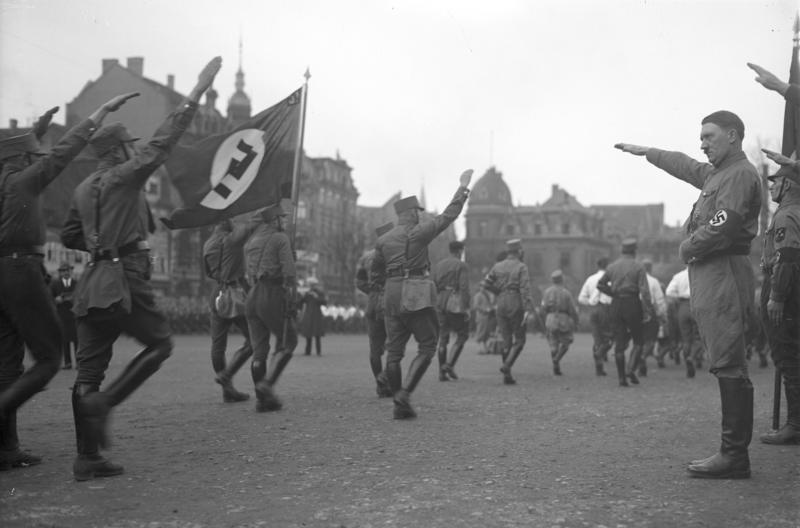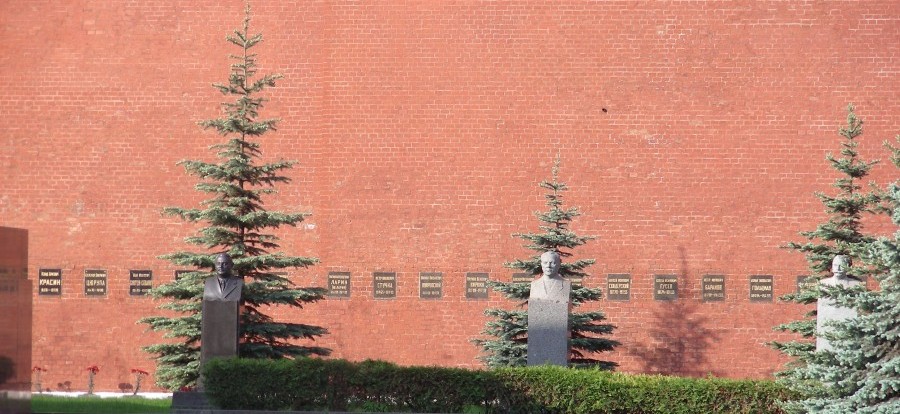Most in Russia and many in the West are so used to thinking of fascism and especially Nazism as a phenomenon of the extreme right that they do not remember that Nazism was National Socialism and that until the Rohm Purge it was as much a movement of the left as of the right.
That failure to understand the roots of Nazism, a failure largely maintained by Soviet and Russian insistence that the Nazis never be identified by the full name of their party – the National Socialist German Workers Party – and by intellectual laziness in the West is limiting the ability of analysts to understand the kind of fascism Vladimir Putin is building.
As a result, while many have talked about “a Weimar scenario” for Russia, few have considered that Vladimir Putin may seek to promote what could be called “left-wing” fascism rather than the “right wing” kind that most people think is the only one that can exist or that the “left-wing” variety, which stresses socialist elements, explains the support he and it have.
In yesterday’s “Vedomosti,” Anton Oleynik, a scholar at Memorial University in Canada, argues that fascism has its roots not in the class politics Marxism suggests but elsewhere, in “the discrediting of formal institutions because of the lack of correspondence between them and actual practice” and a sense that in that situation one’s interests can be defended only by force.
To the extent that is the case, he argues, fascism in Russia would not necessarily be introduced by the extreme right but could draw support “by its actions” from ordinary citizens and representatives of the authorities,” who have lost any faith in the “formal institutions” of domestic governance or international relations.
In that event and for that reason, “as was the case in Weimar Germany, the fascist project in Russia has the chance to gain the support of the majority,” although those who support this project won’t call it fascism or themselves fascists. But then, as Oleynik points out, “Hitler didn’t call himself a fascist either.”
Oleynik begins his article by observing that it is now fashionable in Russia to use the word “fascist” and its derivatives to talk about the extreme right in that country. But that use by itself distracts attention from “a source of fascism which allows it to flourish precisely in Russia today – the inability of formal institutions to correspond to the expectations of the population.”
Institutions, as Douglas North has pointed out in his book “Institutions, Institutional Change and Economic Performance,” establish the frameworks for human interaction, that is, “the rules of the game.” But what is critical, Oleynik says, is whether formal institutions correspondent to actual practice or not.
If they don’t, then sooner or later, people turn away from the formal institutions because “no one likes playing in an ‘alien’ game.” That is exactly what has happened in Russia both with regard to democracy at home and the international rules of the game established by the West over the last two decades abroad.
When an individual or a country refuses to play by the rules, it either “refuses to play” and leaves the game to others or makes an effort to impose its rules on others by force.
The Weimar Republic lasted only 14 years, but it represented an attempt to find “a ‘wise compromise’ between revolution and the status quo. (It was also, Oleynik notes, “the first attempt at the existence of a unified Germany.”) The attempt did not succeed and ended with Hitler’s coming to power.
There has been much interest in Russia in the Weimar case “because of certain analogies between Weimar Germany and post-Soviet Russia. The latter also became the product of a rejection of a revolutionary variant of development.” Indeed, “in 1991, a real revolution did not take place.”
Instead, “in place of the Soviet empire which had disappeared gradually has been restored another empire, a New Russian one. Its size is not comparable with the Soviet one, but the principle is the same,” Oleynik says. That sets up the possibility that after a Weimar-like period, Russia could enter into a fascist one.
One of the first to warn of this danger was Aleksandr Yanov in his 1995 book, “After Yeltsin: ‘Weimar’ Russia” in which he pointed to the internal weakness of the empire, something exacerbated by the weakness of democratic institutions into what he suggested was “an explosive mixture.”
During the prosperous first decade of the 21st century, many forgot about this prediction, but in fact, it was exactly during that period that the preconditions for its fulfillment were met: “The empire stood up again. Sovereign democracy strengthened. Art and sport flourished,” again just as in Weimar times.
In many respects, Oleynik says, “the defeat of the USSR in the Cold War played a role analogous in contemporary Russia” to what Germany’s defeat in World War I did. “Formally, there wasn’t any capitulation, but the status of super power was lost” and from the point of view of others, Russia was no longer an empire but “an ordinary country.”
As in Weimar Germany so too in post-Soviet Russia, many people were anything but acceptant of that change, and their feelings were exacerbated by the fact that “as in Weimar Germany,” democratic institutions in Russia “’haven’t worked.’” As a result, democracy has come to be associated only with elite games and popular suffering.
German theorist Peter Sloterdijk said of Weimar that “everywhere the bitter feeling of having been deceived was combined with the sense that everything had to begin again from square one,” a statement that could be applied with equal force to post-Soviet Russia, Oleynik argues.
Moreover, as Sloterdijk has written, fascism “directly rejects efforts to somehow legitimate itself by openly proclaiming cruelty and ‘holy egotism’ as a political necessarity and a historical-biological law.” In such circumstances, nationalism “becomes one of the means of rejecting formal institutions of democracy and international agreements viewed as alien and as having been imposed from the outside.”
Again, Russia fully fits into this pattern, deploying force outside its borders to correct what it sees as a world order that was imposed on it and force within its borders to correct a situation that the institutions it was compelled to accept do not work or in fact work directly against its interests.
If the economic situation worsens and popular dissatisfaction increases, Oleynik suggests, these forces working to bring fascism, especially a left fascism, to Russia will only increase not only as a survival strategy for the elites but also as a means of resolving the sense of betrayal among many members of the population.




